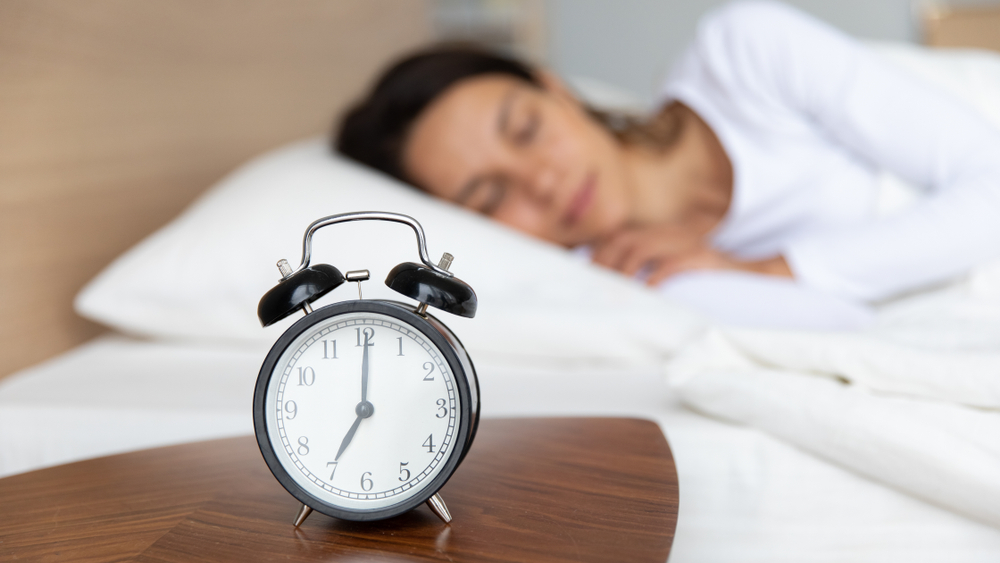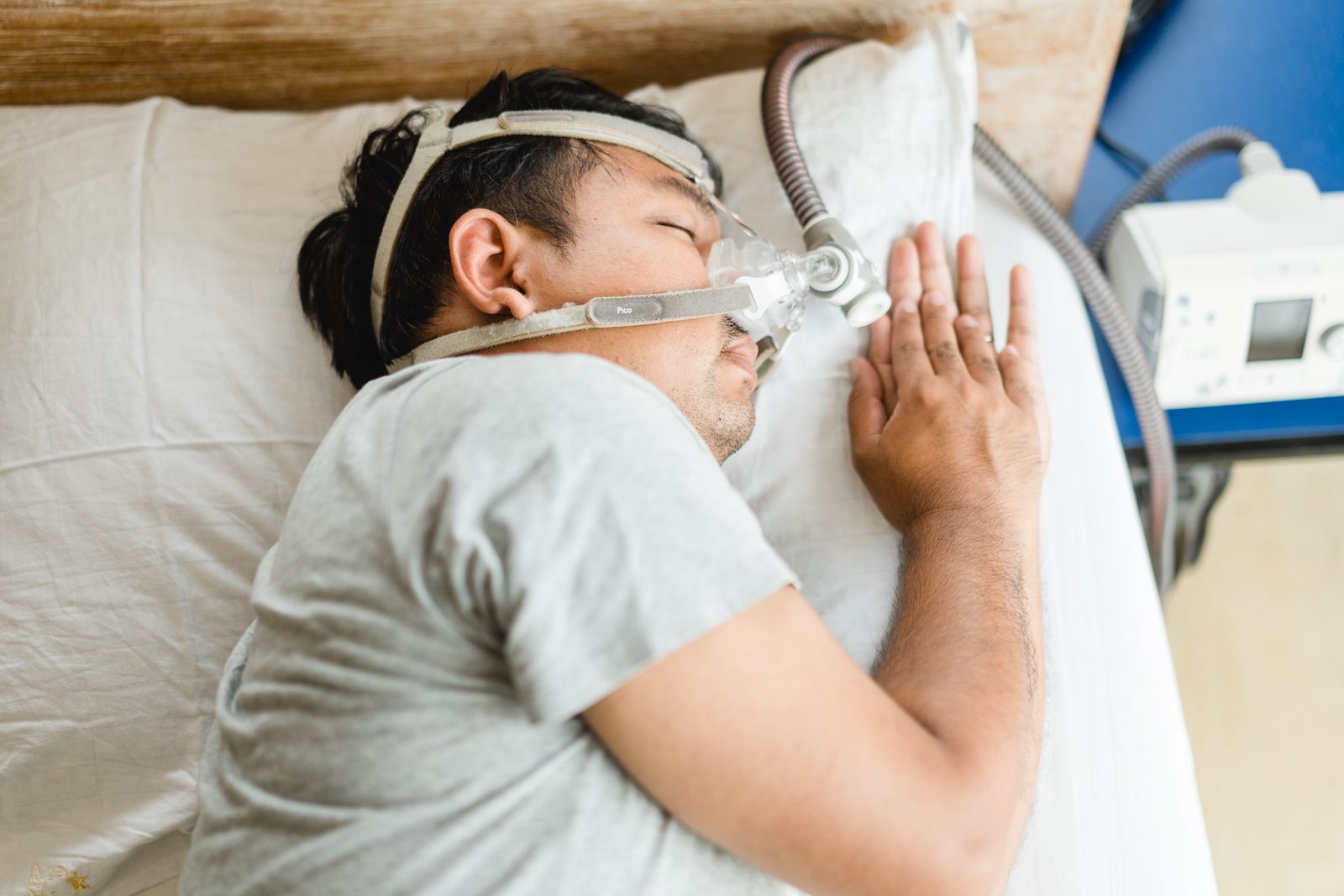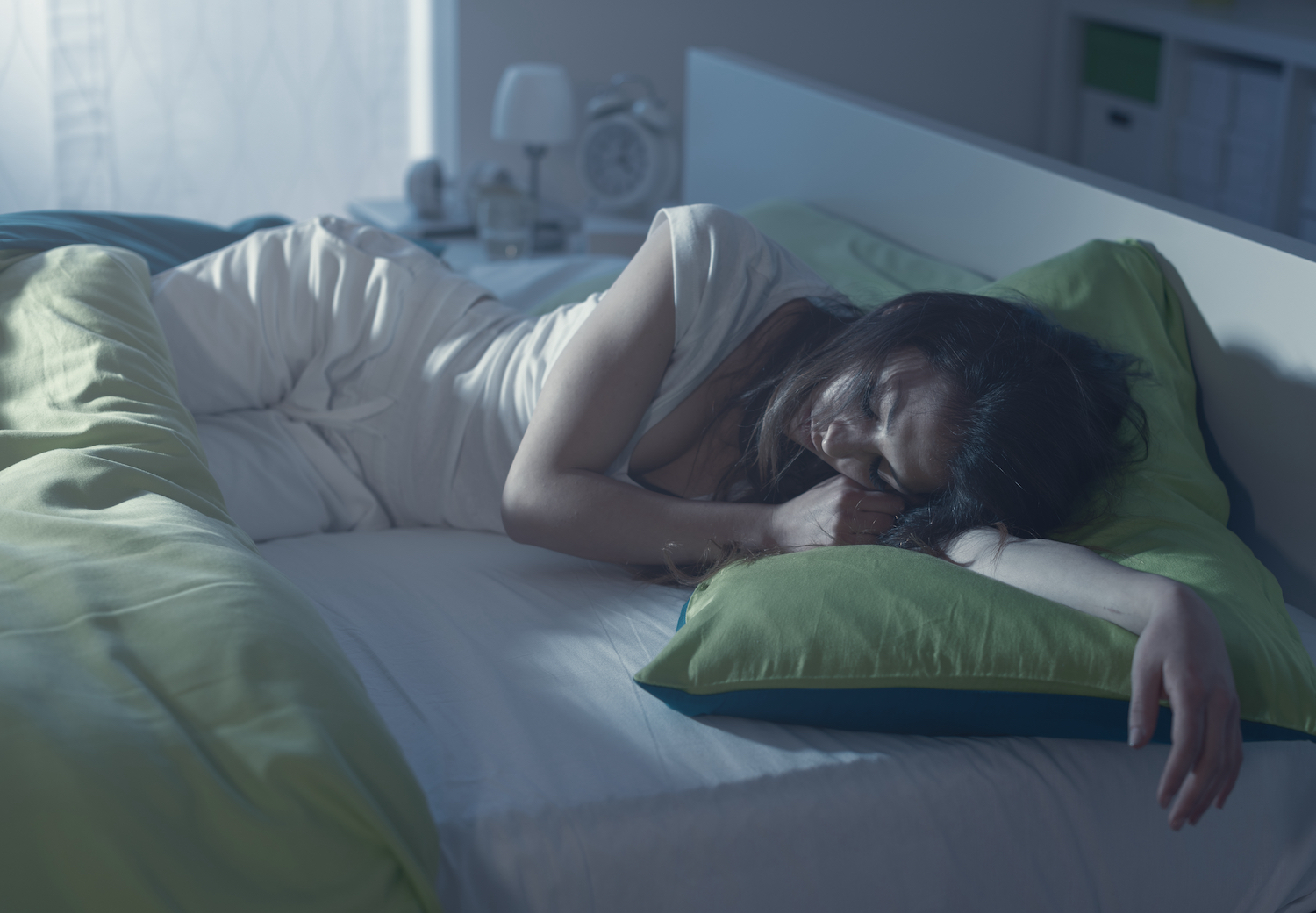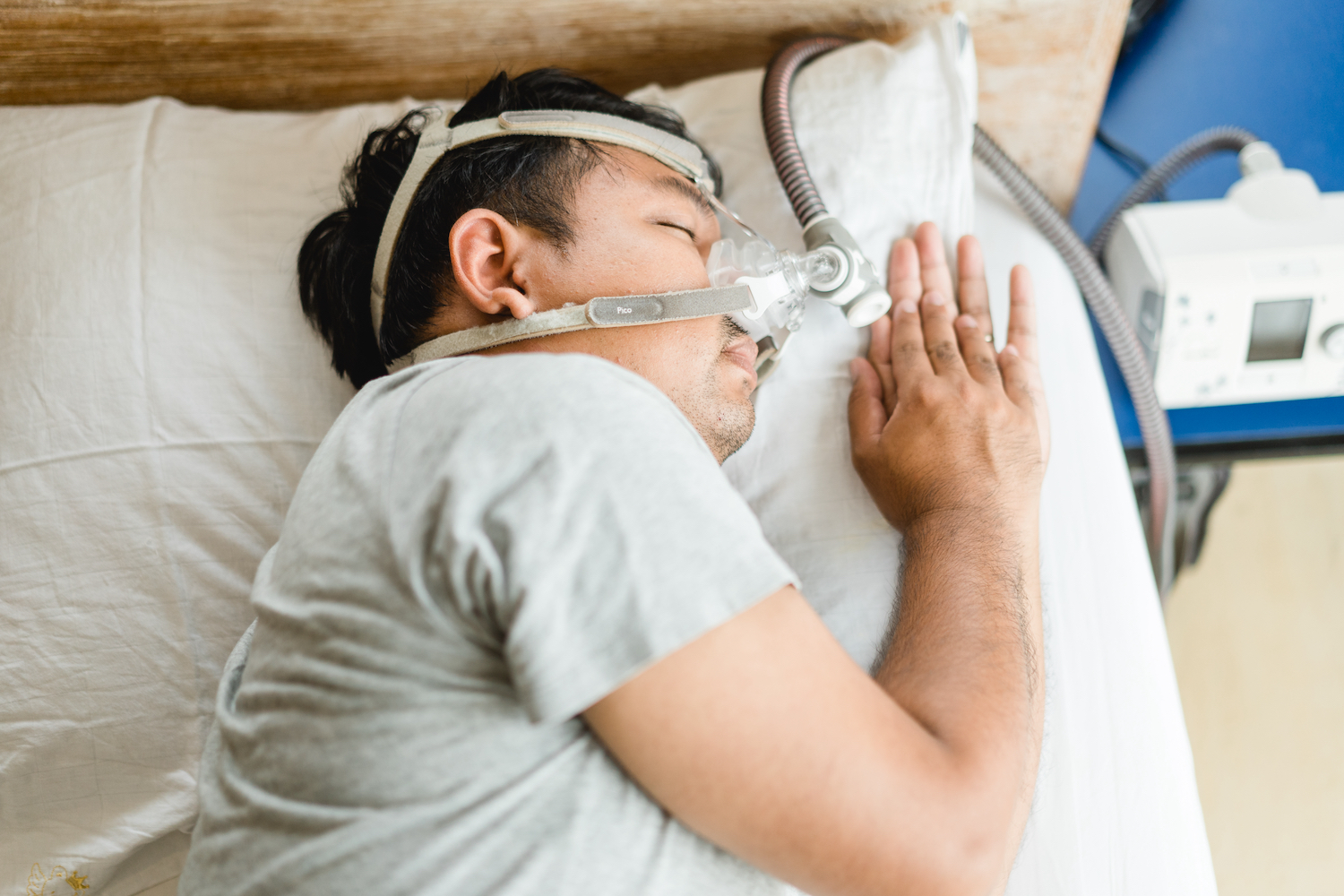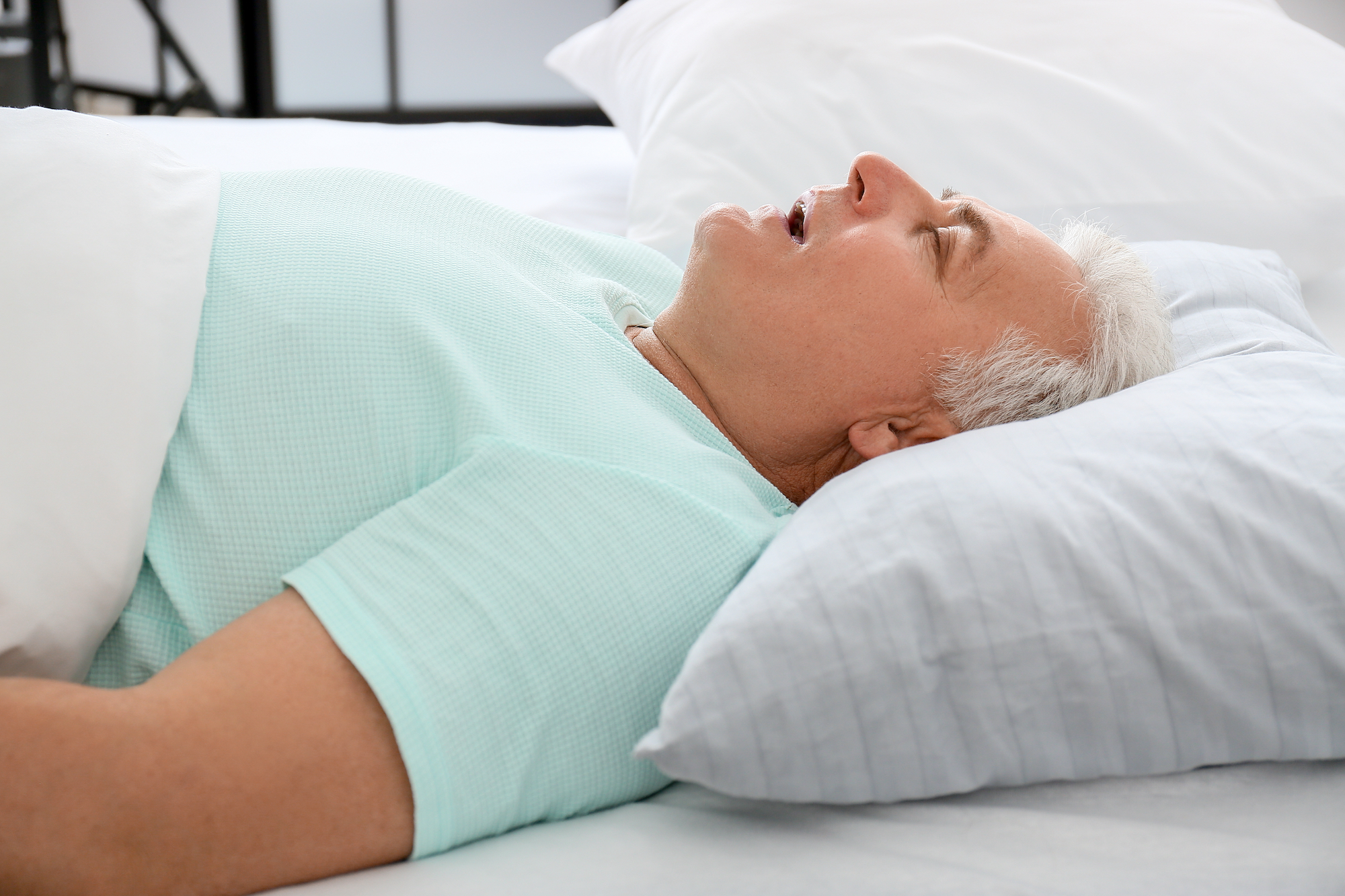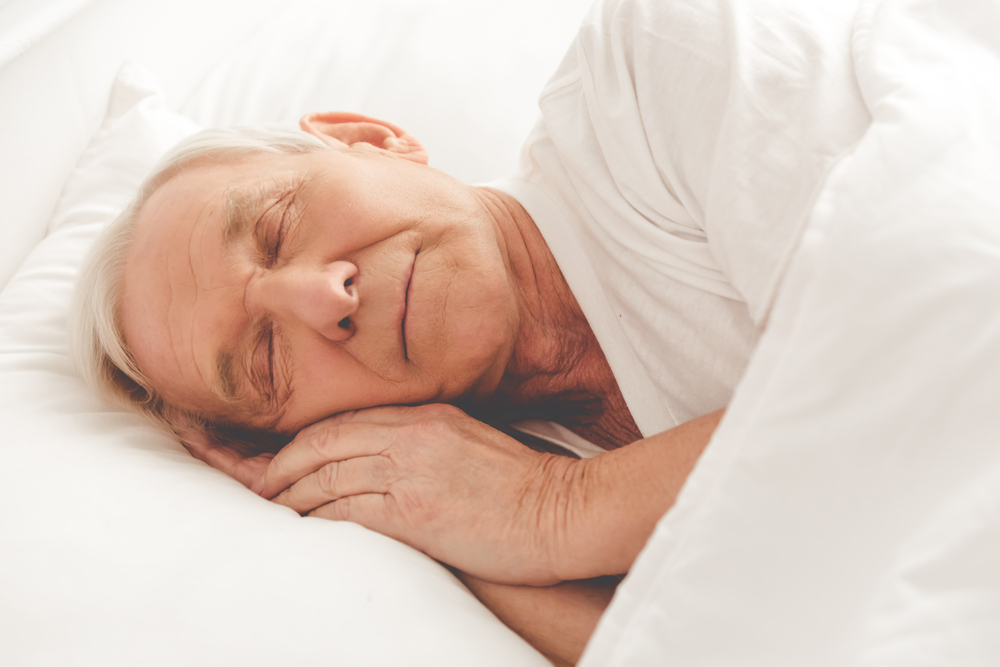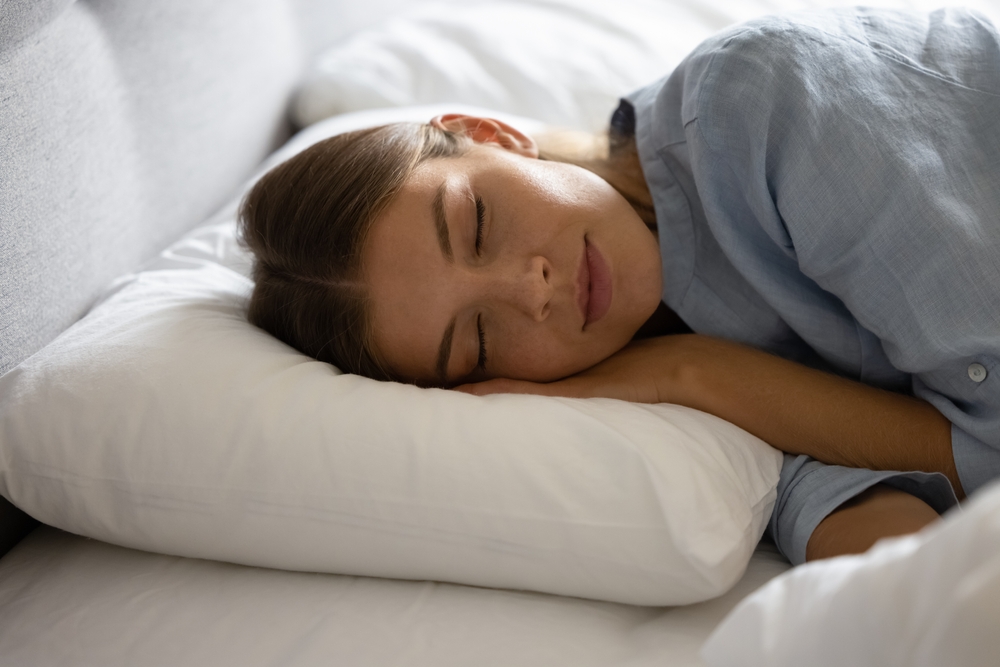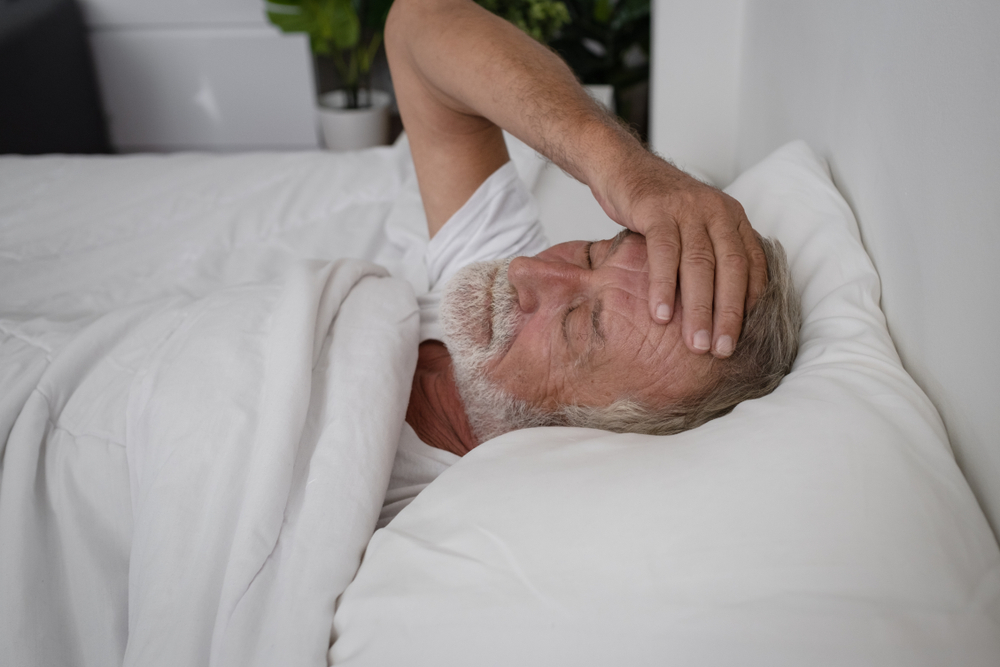While it can be easy to focus on the amount of sleep you get each night, the quality of your sleep is also important. High-quality sleep is a vital part of your overall health. Waking up too early or waking up frequently during the night can impact the amount of time you spend in each stage of sleep.
During a typical night, you will cycle through multiple stages of sleep. Each stage contributes to you feeling well-rested and restored in the morning. A healthy sleep cycle has many benefits, including helping your brain repair itself, strengthening your immune system, and improving your ability to learn.
Understanding the Sleep Cycle
During sleep, our body repeatedly cycles through a series of four sleep stages, also known as sleep architecture. People typically cycle through the four stages of sleep every 90 to 120 minutes during the night.
In an eight-hour night’s sleep, you will usually complete the cycle four to five times. The amount of time you spend in each stage of sleep will change as you progress through the night.
Sleep cycles can vary from person to person, as there are a variety of factors that can impact your cycle. These factors include:
- Age
- Medications, such as antidepressants or benzodiazepines
- Sleep disorders, including obstructive sleep apnea, narcolepsy, and restless legs syndrome
- Substances such as caffeine, nicotine and alcohol
- Mood disorders
What Are the Four Stages of Sleep?
Sleep can be divided into two broad categories: non-rapid eye movement (NREM) sleep and rapid eye movement (REM) sleep. An adult spends the majority of the night in NREM sleep.
You typically begin the sleep cycle with three stages of NREM sleep. During NREM sleep, you move from a light sleep to a deep sleep. Your body relaxes, your eye movements cease, and your heart rate and brain activity decrease. But during REM sleep, many of your body’s processes are similar to a waking state as your dreams become rich and vivid.
Stage 1 NREM Sleep
The first stage of sleep is when you transition from being awake to a light sleep. This typically only lasts a few minutes, although adult men tend to spend more time in stage 1 sleep.
In stage 1 NREM sleep, you are susceptible to being woken up easily. When you are awoken from stage 1 sleep, you may not even realize you were asleep.
During stage 1 NREM sleep, your muscles start to relax and your brain activity slows. As you transition to sleep, your heart rate, respirations, and eye movements will begin to decrease.
Stage 2 NREM Sleep
Adults spend most of their sleep time in stage 2 NREM sleep. Approximately 50% of your total sleep time is spent in this stage.
In stage 2 NREM, your sleep deepens. You can still be awakened, but it is more difficult than in stage 1. Your heart rate and respiration decrease even further. Your eye movement stops completely and your body temperature decreases.
Two unique patterns of brain waves during stage 2 sleep are sleep spindles and K-complexes.
- Sleep spindles: Sleep spindles appear as quick, sharp increases in brain activity on an electroencephalogram (EEG). Researchers believe that sleep spindles are involved in the formation of memories and enhance learning.
- K-complexes: K-complexes appear as negative dips followed immediately by a sharp spike. They help maintain sleep by blocking external stimuli. Others suggest that they can help arouse you from sleep when the brain interprets a stimulus as dangerous. They may also help the brain form long-term memories.
Stage 3 NREM Sleep
Stage 3 NREM sleep is considered the deepest sleep state and is sometimes referred to as slow wave sleep or deep sleep. It is responsible for you feeling refreshed and restored in the morning.
Respiration, heart rate, and brain activity are at their lowest levels during this period. Your body is very relaxed, and it is more difficult to be awakened during this stage.
Stage 3 NREM is when sleep talking, sleepwalking, and night terrors occur most frequently.
You spend more time in stage 3 NREM sleep during the beginning of the night. Stage 3 sleep generally accounts for 20 to 40 minutes during the first cycle and decreases later in the night.
REM Sleep
Typically about 90 minutes after falling asleep, you begin to experience REM sleep. As the night progresses, you will begin to spend more time in this stage. In your first sleep cycle, you may only spend 10 minutes in REM, but later in the night this stage may last around 60 minutes. REM sleep accounts for a little less than 25% of total sleep in adults.
During REM sleep, your eyes begin to move around rapidly, and your heart rate and blood pressure increase. Your brain activity levels are similar to when you are awake.
Dreams can occur in any stage of sleep but REM is when most vivid dreams occur. Also during REM sleep, your leg and arm muscles are temporarily unable to move. Researchers believe this is to prevent you from acting out your dreams.
Experts theorize that REM sleep is important for helping your brain retain memories and improve cognitive functioning. Evidence suggests that REM sleep also helps with managing stress and processing emotions.
Do Sleep Stages Vary at Different Ages?
Sleep cycles change dramatically as you age. Throughout your lifetime, there are changes in the amount of time spent in NREM and REM sleep, as well as the stage in which you begin your sleep cycle.
Newborns
A newborn needs approximately 16 to 18 hours of sleep per day. However, they wake frequently, often only sleeping two to four hours at a time. During these short bursts of sleep, they may only have one or two sleep cycles. Unlike adults, they often enter REM sleep as soon as they fall asleep and spend a larger proportion of their sleep time in REM.
Young Children
Sleep needs decrease as a child ages. Young children need about 11 to 12 hours of sleep per night. Children initiate sleep in NREM and spend approximately 75% of their total sleep time in NREM. As the night progresses, the amount of time spent in REM increases.
Adolescents
While adolescents need 9 to 10 hours of sleep per night, most only get seven to seven and a half hours. Starting in puberty and continuing into adulthood, adolescents will spend less time in NREM stage 3. Sleep routines also often shift in adolescence, with teenagers going to sleep later and waking up later in the morning.
Adults
Sleep needs vary from person to person, but most adults need seven to nine hours of sleep per night. The amount of time spent in each sleep stage remains fairly consistent until midlife. The quality of sleep tends to decrease with age, trending towards less time in deep sleep and more nighttime awakenings.
Older Adults
As we age, our need for seven to nine hours of sleep stays consistent, but up to 50% of older adults report dissatisfaction with their quality of sleep. The amount of time spent in stage 3 NREM sleep continues to decrease throughout adulthood, and some older adults may not spend any time in stage 3 NREM.
However, these changes may not be a part of normal aging. Instead, they can be due to other factors, such as health complications, depressed mood, and medications.
What Can Affect Your Sleep Cycle?
While sleep architecture changes over your lifetime, factors such as your mental health, physical well being, and changes in your daily routine can also have a direct impact on your sleep cycle.
- Alcohol and substances: Alcohol and certain drugs can disrupt your sleep cycle. While alcohol can help induce sleep initially, it can cause poor sleep quality as the night progresses. Alcohol decreases REM sleep early in the night and increases stage 1 sleep later in the night, making it easier to awaken.
- Mental health: Depression can change the body’s natural sleep cycle, leading to frequent nighttime awakenings and reduced sleep quality. People with depression spend more time in REM sleep early in the night and less time in stage 3 sleep overall.
- Sleep disorders: Some sleep disorders can have a significant impact on your sleep cycle. Disorders such as obstructive sleep apnea, restless legs syndrome, and narcolepsy can lead to frequent nighttime awakenings and alter the way you cycle through the sleep stages.
- Medications: A range of medications can affect your sleep architecture. For example, anti-seizure medications, some antidepressants, beta-blockers, and benzodiazepines can all alter how you move through sleep cycles and impact sleep quality.
What Happens When Sleep Stages Are Disrupted?
Sleep loss and disruption of the sleep stages can negatively impact your mood and health. Disrupted sleep can affect your ability to handle stress, impair your cognitive functioning, and can even increase the amount of pain you experience. In children and adolescents, disrupted sleep is associated with behavioral problems and can negatively impact school performance.
There are many health risks associated with a disrupted sleep cycle.
- Cardiovascular risks: Long-term sleep disruption increases the risk of high blood pressure, cardiovascular disease, and heart attacks. Specifically there is an association between REM loss and cardiovascular death.
- Diabetes and glucose impairment: Research shows that not getting enough stage 3 NREM sleep puts people at higher risk for diabetes and glucose impairment.
- Obesity: There is a strong relationship between the amount of sleep a person gets and their body mass index (BMI). Disrupted sleep can impair a person’s metabolism and is associated with weight gain and obesity.
- Mood changes: Chronic sleep loss can negatively impact mood for both adults and adolescents, potentially increasing the symptoms of depression and anxiety.
How to Improve Your Sleep
There are many things you can do to improve your sleep. Ensuring you have healthy sleep habits, also known as sleep hygiene, is a good place to start. The following practices can help support healthy sleep habits.
- Be consistent: Help your body get into a routine by going to bed and waking up at the same time every day, including on the weekends. Creating regularity in your circadian cycle helps with a consistent wake-up time helps ensure your body is accustomed to a sleep-wake pattern. So set your alarm for the same time each day.
- Establish a calming bedtime routine: Engage in a relaxing activity before bed, such as listening to calm music, reading or taking a bath. Looking at a TV or computer can make it difficult to fall asleep, so avoid using an electronic device close to bedtime. Plan your evening so that you have at least 30 minutes of relaxation time before you start your go-to-bed routine.
- Make smart lifestyle choices: Try to get plenty of exercise during the day but not within two hours of bedtime. Avoid caffeine, alcohol, and large meals late in the evening. This also includes disconnecting from your devices about an hour before bed.
- Manage stress: Find healthy ways to manage your stress. Engaging in yoga, meditation, or journaling can help you to reduce stress and anxiety so you can get a good night’s rest.
- Create a relaxing sleep environment: Keep your bedroom quiet, dark, and at a cool yet comfortable temperature. Use a comfortable mattress and pillow to promote relaxation.
- Get morning sunlight: Our sleep biology has evolved alongside daily patterns of sunlight and darkness. Exposure to natural light during the day, especially in the morning hours helps regulate your circadian clock, making it easier to fall asleep when you naturally should.
- Consider a natural sleep aid: Dietary supplements like magnesium, valerian, chamomile, or L-Theanine have differing benefits on your sleep, but they can be helpful tools for relaxation and sleep.


